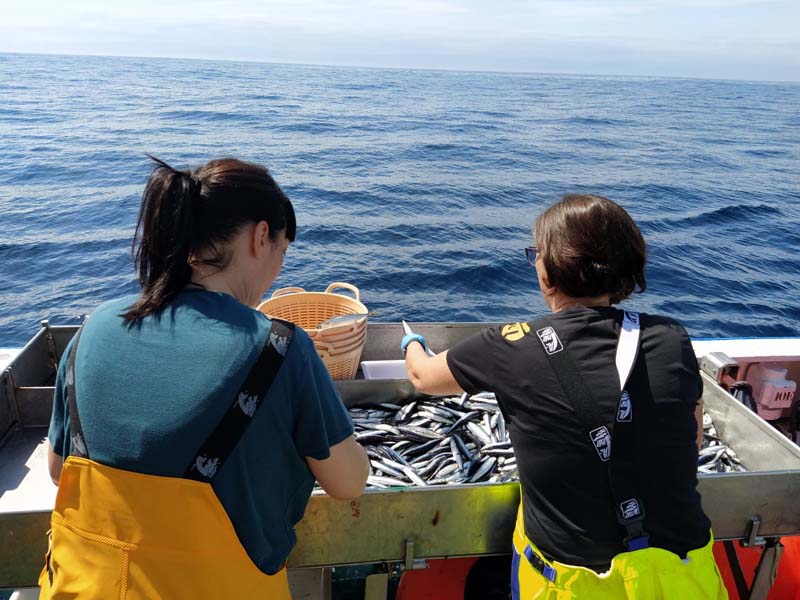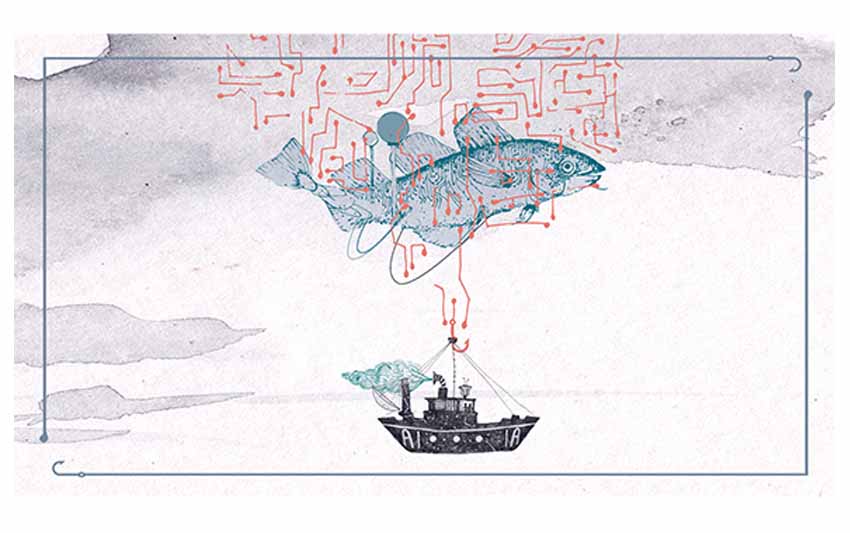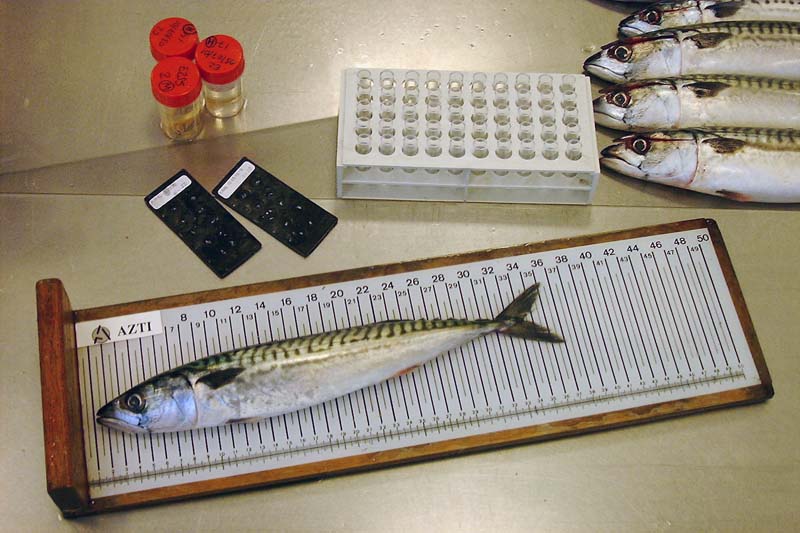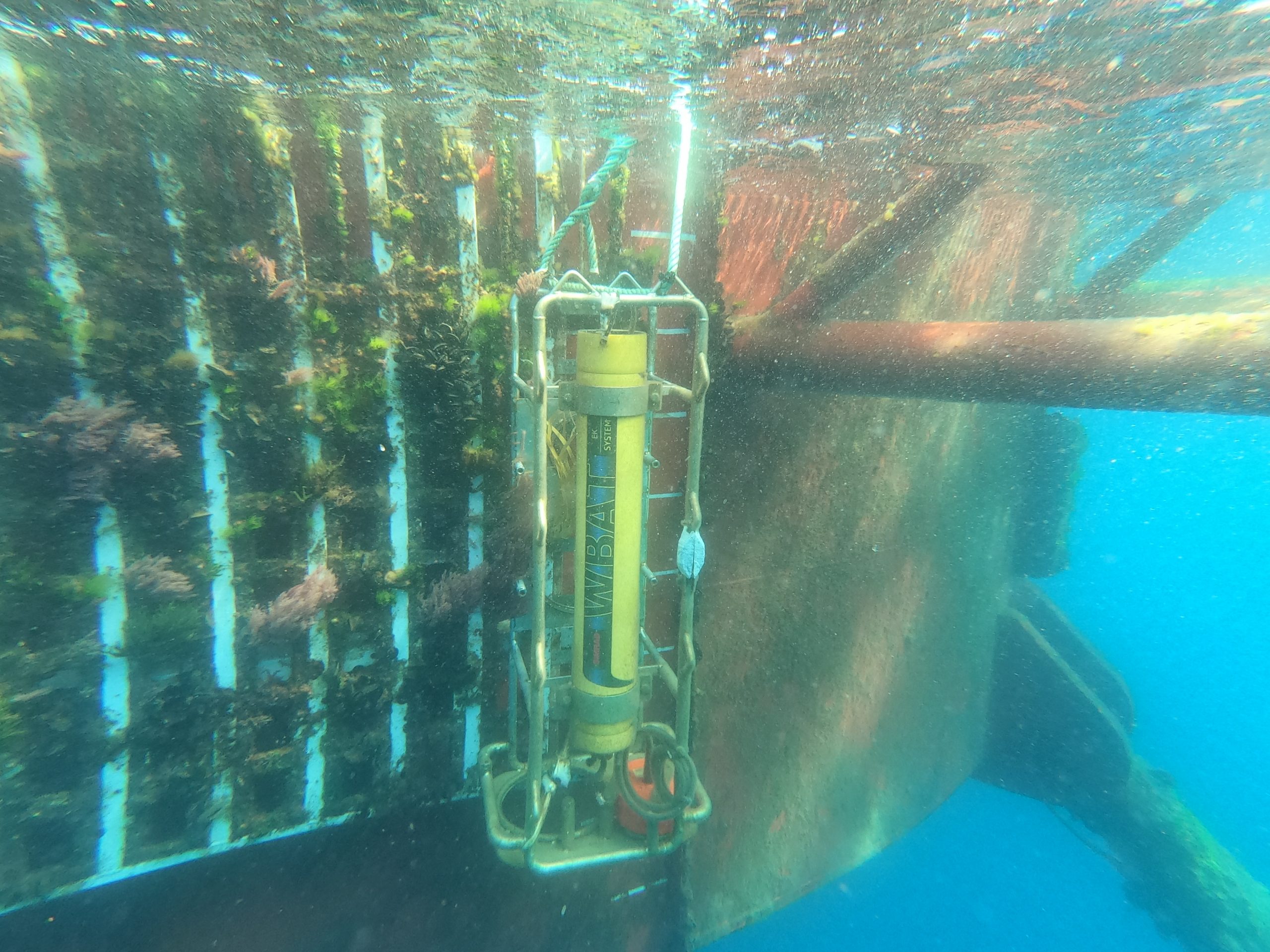Old nets? New rope! European project tackling marine plastics with circular fishing gear and port solutions
Últimas noticias
The replica of the San Juan will set sail on a scientific mission thanks to an agreement between Albaola and AZTI.
Mediterranean warming transforms fishing catches and income on the Catalan coast
Why include eco-design in the development of novel foods?
Combining research and industry expertise from across Europe, EU-funded project SEARCULAR is trialling circular fishing gear solutions, which, if scaled up, could prevent thousands of tonnes of marine plastic ending up in the ocean each year, while also supporting sustainable fisheries.
Led by Spanish research institute AZTI and involving 13 European industry specialists and research organisations, SEARCULAR is working in close collaboration with the fishing industry to develop and test innovative fishing gear solutions with the potential to reduce the amount of marine litter and microplastics generated by Europe’s fishing industry.
Fishing gear is recognised as a significant source of marine litter both in Europe and globally; several related policy initiatives and EU directives – including the European Green Deal, Single Use Plastics (SUP) Directive, and Port Reception Facilities (PRF) Directive – include targets aimed at addressing marine plastics, including end-of-life fishing gear.
Working from deck to port, SEARCULAR is trialling tailored solutions involving the development of more sustainable fishing gear materials, alongside end-of-life fishing gear and port-based measures to tackle this issue at source.
If rolled out, together these would extend the life-cycle of fishing gear, prevent significant quantities of plastics entering the sea each year, and at the same time generate new material streams from old gears, facilitating the development of a circular economy for fishing gear.

Índice de contenidos
SEARCULAR’s four innovative and practical solutions for reducing marine litter
Every year, thousands of tonnes of nets are discarded, having reached the end of their lives. During its life, gear used as part of fishing operations is subject to high wear and tear and can become a source of microplastics and marine litter at sea.
Because there is no one-size-all when it comes to fishing, SEARCULAR is trialling an array of solutions to tackle these issues, tailored to the bespoke needs of different fisheries, net types, and different stages of the gear lifecycle.
Among the technical solutions being developed, repurposed end-of-life purse seine nets used in tropical tuna fisheries are being used to develop more durable dolly ropes for trawl nets. Harsh marine environments and close contact with the seabed means traditional dolly ropes used on trawl nets fray easily and have a limited lifespan. Giving old gear a new lease of life, the new ropes will be more durable, reducing the amount of marine plastic generated at sea and number of nets discarded in ports.
Ropes used on seine nets targeting fish that live close to the seabed are also subject to high abrasion and wearing. As part of its efforts, SEARCULAR is developing ‘bio-seine’ rope which will be not only three times more resistant than the traditional materials used to manufacture these ropes but also biodegradable. Conversely, where durability is problematic, new designs of biodegradable Fish Aggregating Devices (FADs) used to attract fish in purse seine tuna fisheries are being tested as a means to prevent the accumulation of plastic based FADs in sensitive marine habitats.
On shore, SEARCULAR is developing solutions in support of the sustainable management of fishing gear at ports. Though compulsory in the EU, issues relating to sorting and logistics means that much of the gear collected at ports still ends up in landfill or incinerators. Aiming to address this, SEARCULAR is working to improve capacity for management of end-of-life fishing gears by trialling a replicable Blue Point for gear collection, sorting and conditioning, which will encompass guidance on recirculation of material.
As part of the three-year project, fishers, gear manufacturers, and researchers are working together to implement end-of-life solutions for old gear, and develop practical but innovative materials appropriate to the challenging environments they must withstand.
Quotes from the project
AZTI’s Oihane C.Basurko, the SEARCULAR project coordinator said, “SEARCULAR’s solutions will facilitate the reduction of the fishing industry’s contribution to marine litter and microplastics by enabling the implementation of innovative, circular approaches to gear production, use and end-of-life management. Working with industry partners and stakeholders is a key element to this, and will ensure the project delivers practical solutions that work for the marine environment, and fishers across Europe.”
Rune Sand, skipper of the Fortuna vessel said, “Clean seas and healthy marine environments are crucial to our livelihoods at sea, as fishermen. It is of great importance to us as fishers that we are able to switch to biodegradable seine ropes and help decrease the microplastics released from conventional ropes. Fishers have unique knowledge to contribute, which is why we are working closely with SEARCULAR to develop practical solutions that we can adopt onboard- as a Seine fisher I am keen to help overcome the problem of plastic pollution and keep the industry at sea.”
About SEARCULAR
Funded by the European Union under the EU Mission ‘Restore our Ocean and Waters’ and the UK Research and Innovation (UKRI), SEARCULAR is a three year project running from 2023-2026. Focused on facilitation of a circular economy for fishing gear, the project aims to reduce fisheries-related marine litter, support clean seas and a healthy marine environment.
For more information about SEARCULAR and the project’s work to support clean seas and sustainable fisheries visit: www.searcular.eu







